Elisabeth Bik doesn’t regret becoming a scientific sleuth who catches researchers behaving badly for a living for one minute. That’s despite her recently facing legal threats from two bioscientists in France – prosecutors in Marseille just concluded that there was not enough evidence to charge her.
In a previous life, she was a microbiologist at the University of Stanford in California for 15 years. After that, she worked in industry for two years before deciding in 2019 to go it alone in the world of research integrity.
She now publishes a blog, Science Integrity Digest, and regularly posts her findings on X, formerly Twitter, and PubPeer, a site where scientists discuss papers.
Dalmeet Singh Chawla caught up with Bik to find out more.
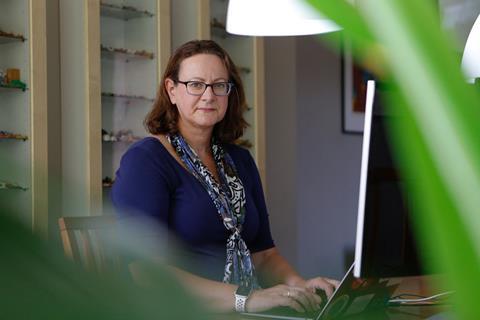
Chemistry World: How do you feel after the complaint against you was dismissed?
Elisabeth Bik: Very relieved. I was worried because I would have probably had to show up at some point in court and these court cases can take forever. It might have involved travel and a lot of my time. The online trolls were also giving me a hard time.
I’m confident that I’m innocent but you need to convince everyone else of that. You’re always worried about what they’ll dig up in your past to try and break your character. It wasn’t going to be a pleasant experience.
Chemistry World: Have you ever received any other legal threats?
EB: In 2021, I received letters to take down this blog post about research that suggested that a master of Qigong — an ancient Chinese healing practice that uses body postures, movement and breathing — can use his energy to irradiate cancer cells from several miles away. Two different lawyers, acting on behalf of the authors, contacted me. The second one even told me to publicly apologise. I sent them a letter back saying I’m not going to do that.
If someone really had that power, I would suggest they direct their forces to all the hospitals in the world to cure everybody of cancer instead of suing me for questioning these papers.
Chemistry World: Do you regret pursuing this line of work given the online harassment and legal threats you’re facing?
EB: Absolutely not. I don’t regret a single thing. I should have done it earlier, I think.
The money was nice in my last role with benefits and all and it was tough in the beginning when I didn’t have any income. It was especially difficult because I suddenly had to pay for health insurance and that’s expensive.
I still feel that I’m making a difference
Chemistry World: How do you get by nowadays?
EB: Crowdfunding from those who are concerned about this case. I have 333 paid members on my Patreon account, collectively contributing $2244 (£1778) each month. That allows me to at least pay for my groceries and my health insurance.
I also give talks and do some consultancy work on research integrity. It’s not a lot but I’m so much happier. I feel like I’m doing so much more for the scientific community than I ever could have when I was still employed.
Chemistry World: Do you think publishers and institutions should chip in since you’re helping them detect flawed research?
EB: Well, that is one view. They might view it differently. They probably see me as a nuisance.
It would be nice if they contributed but I think they would see that as paying me to find papers that are wrong. Some companies pay hackers or software experts to find holes in their security systems. I’m doing the equivalent of that for science.
But I also don’t want to work for a boss. Paying me would probably come with regular meetings where I’d need to justify what I did with the money they gave me. If those strings are attached, I wouldn’t want to do it.
Chemistry World: You often note on social media that you flagged problems to journals or publishers several years ago but they haven’t taken any action. Do you find that frustrating?
EB: That is frustrating for sure but it’s also rewarding to find these things, point them out and to have a little fun with them – but some of them are so outrageous!
Even though the number of retractions and corrections are low compared to what we’re finding, I still feel that I’m making a difference.
Publishers may often not respond but hopefully they could change things internally to ensure problematic papers are not published again. What’s more frustrating than the lack of action is that papers are still being published with the same obvious errors and violations of ethics.
Chemistry World: Is the research literature becoming cleaner overall?
EB: You would think that the work other sleuths and I are doing would make things better but it’s honestly a tsunami of bad papers, in part due to AI. It’s not getting any better.
Chemistry World: Do you feel comfortable flagging issues other than image manipulation?
EB: Yes, but I still feel that images are what I’m best at. I’m currently calling out a Nobel Prize winner for duplication.
Chemistry World: What would you say to other sleuths who have legal threats filed against them?
EB: Yun-Fan Juan, an engineer and data scientist, has set up a scientific integrity fund to assist whistleblowers and as legal aid for scientists who are flagging questionable research. Look into that.
Chemistry World: Will you continue doing this for the foreseeable future?
EB: At some point I want to retire. It’s worth noting that scientific fraud is shifting towards AI, which is not my area of expertise so maybe other people who are experts in that will take over.
This interview has been edited for clarity and brevity.

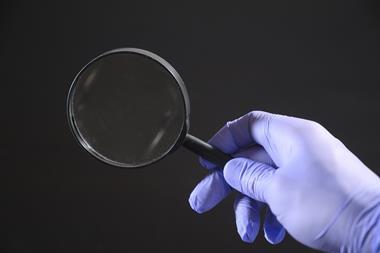
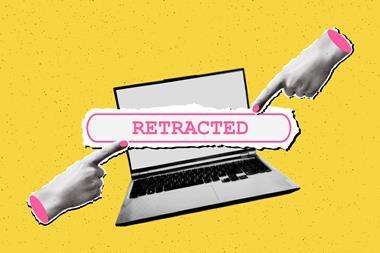
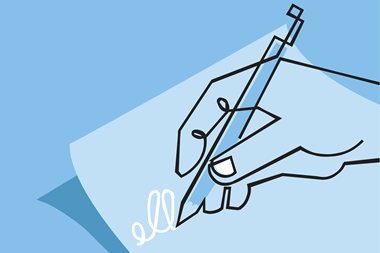
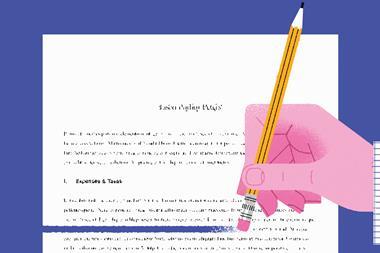
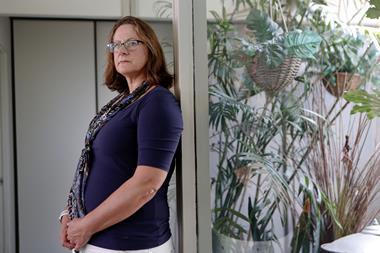






No comments yet